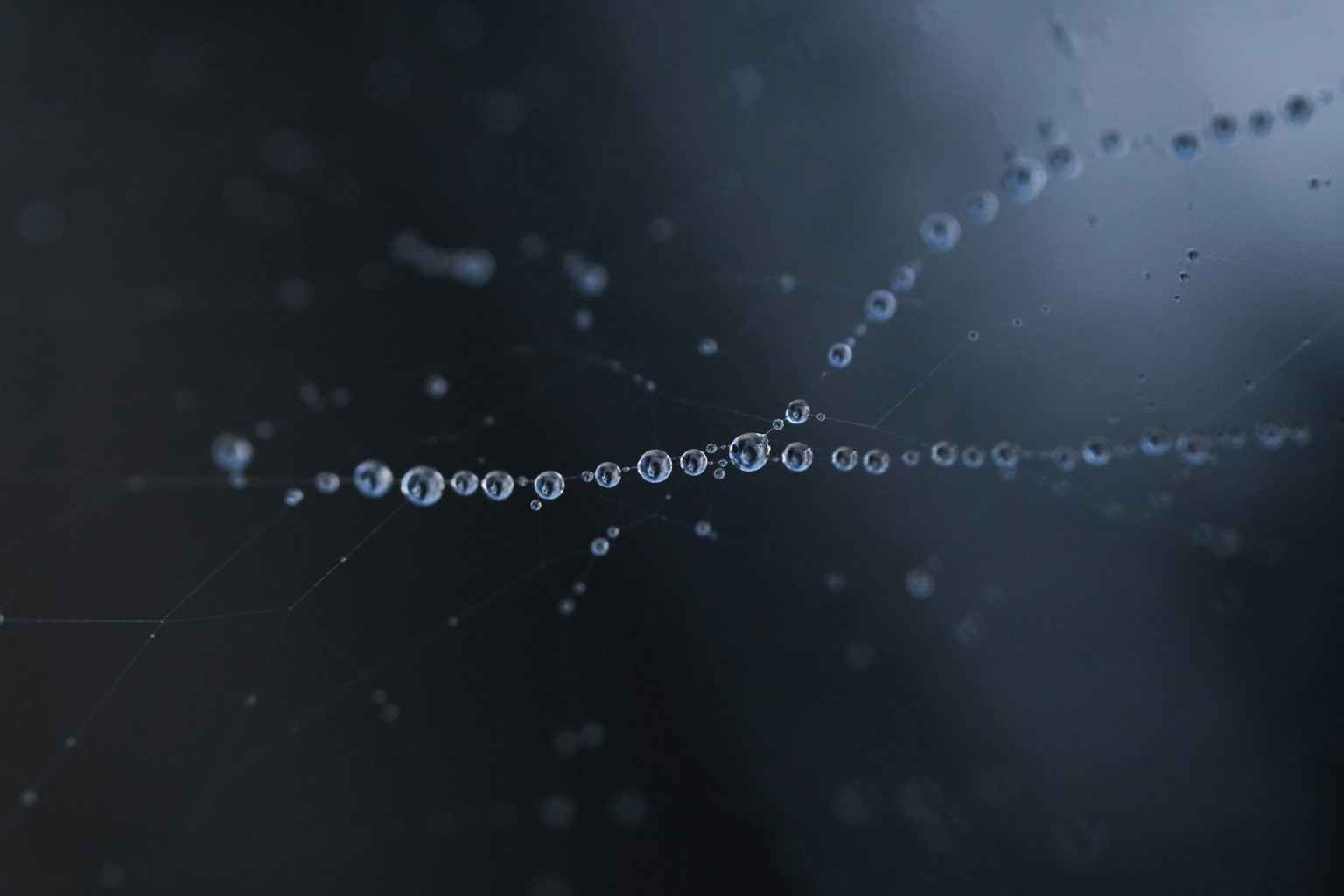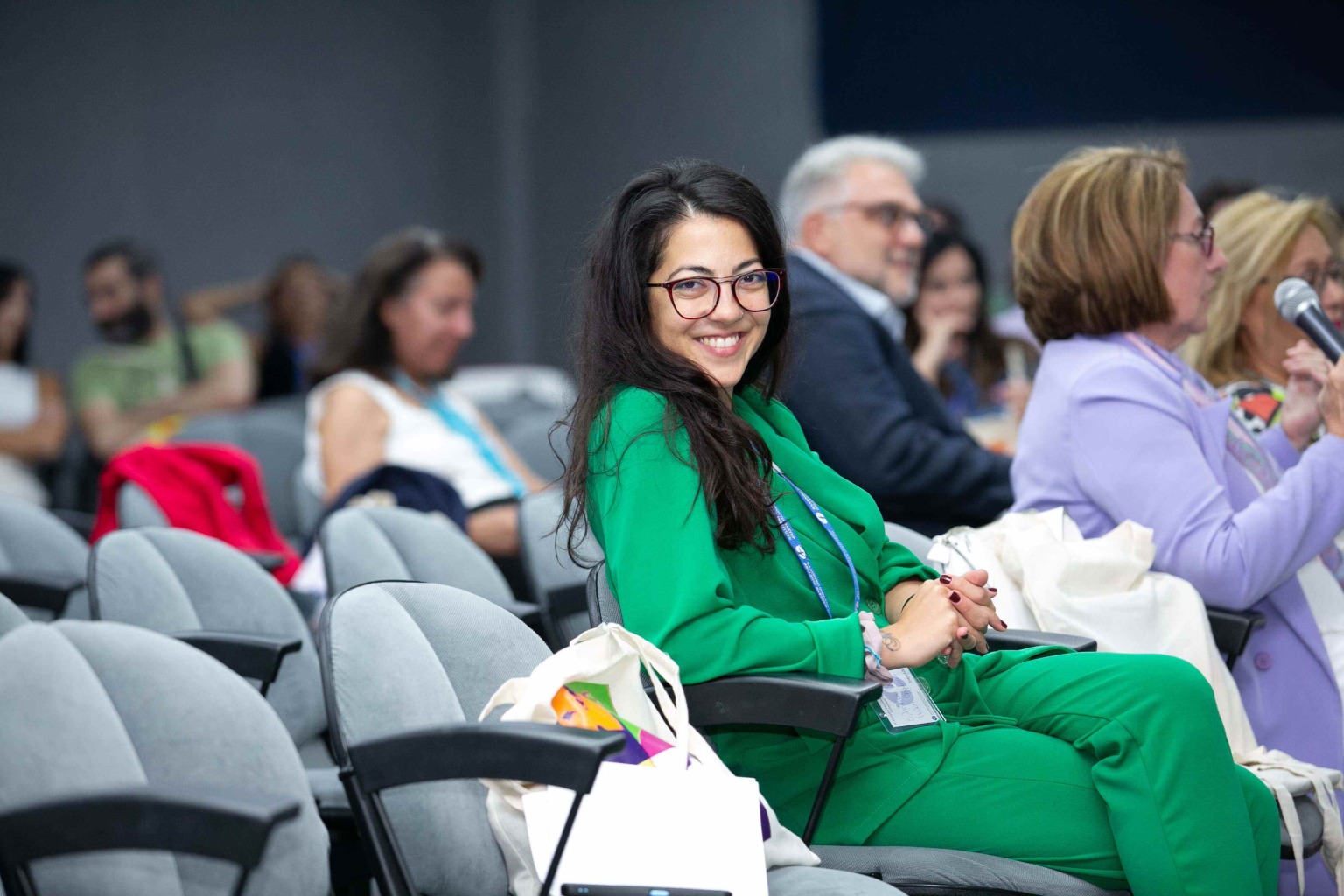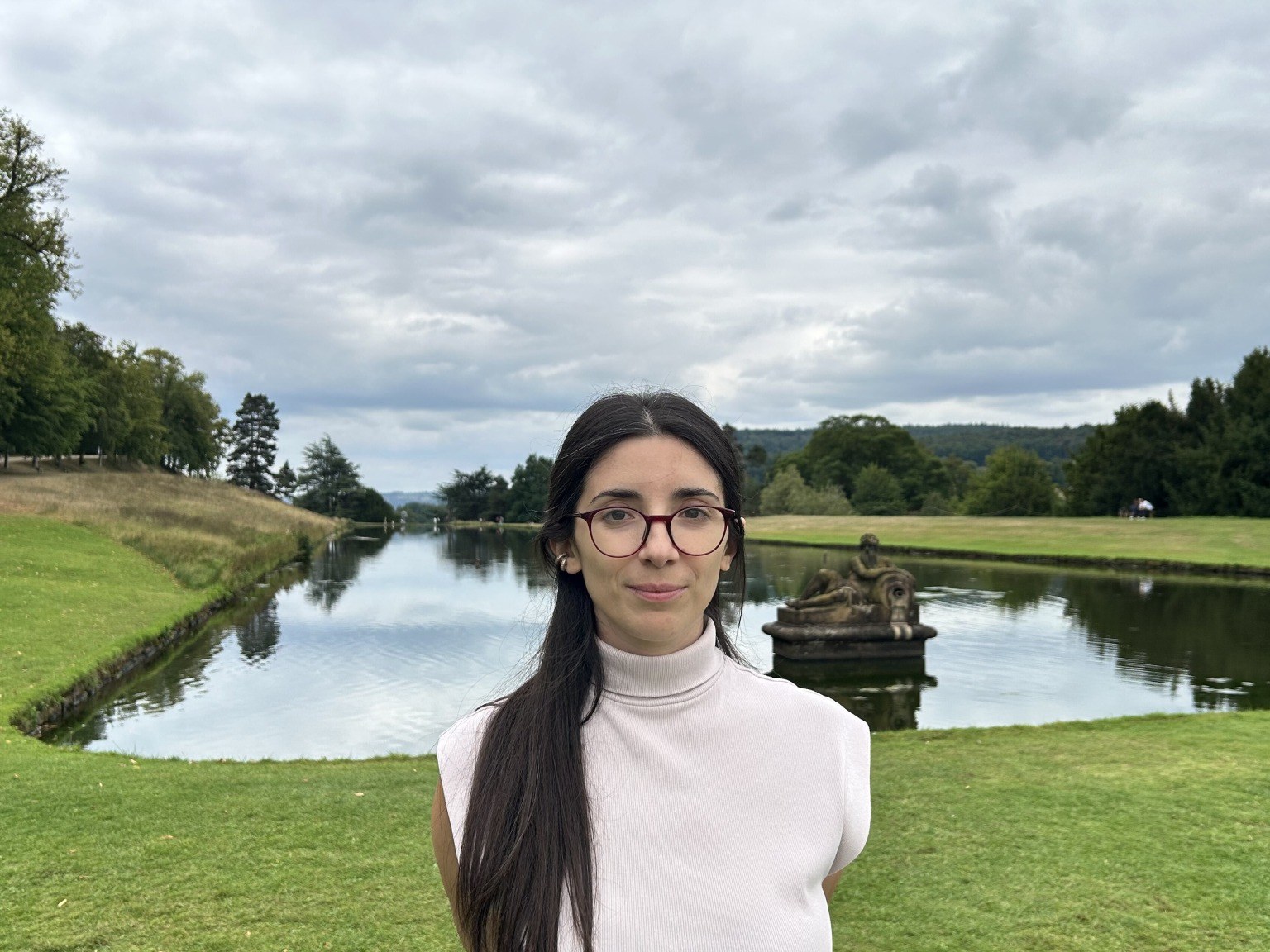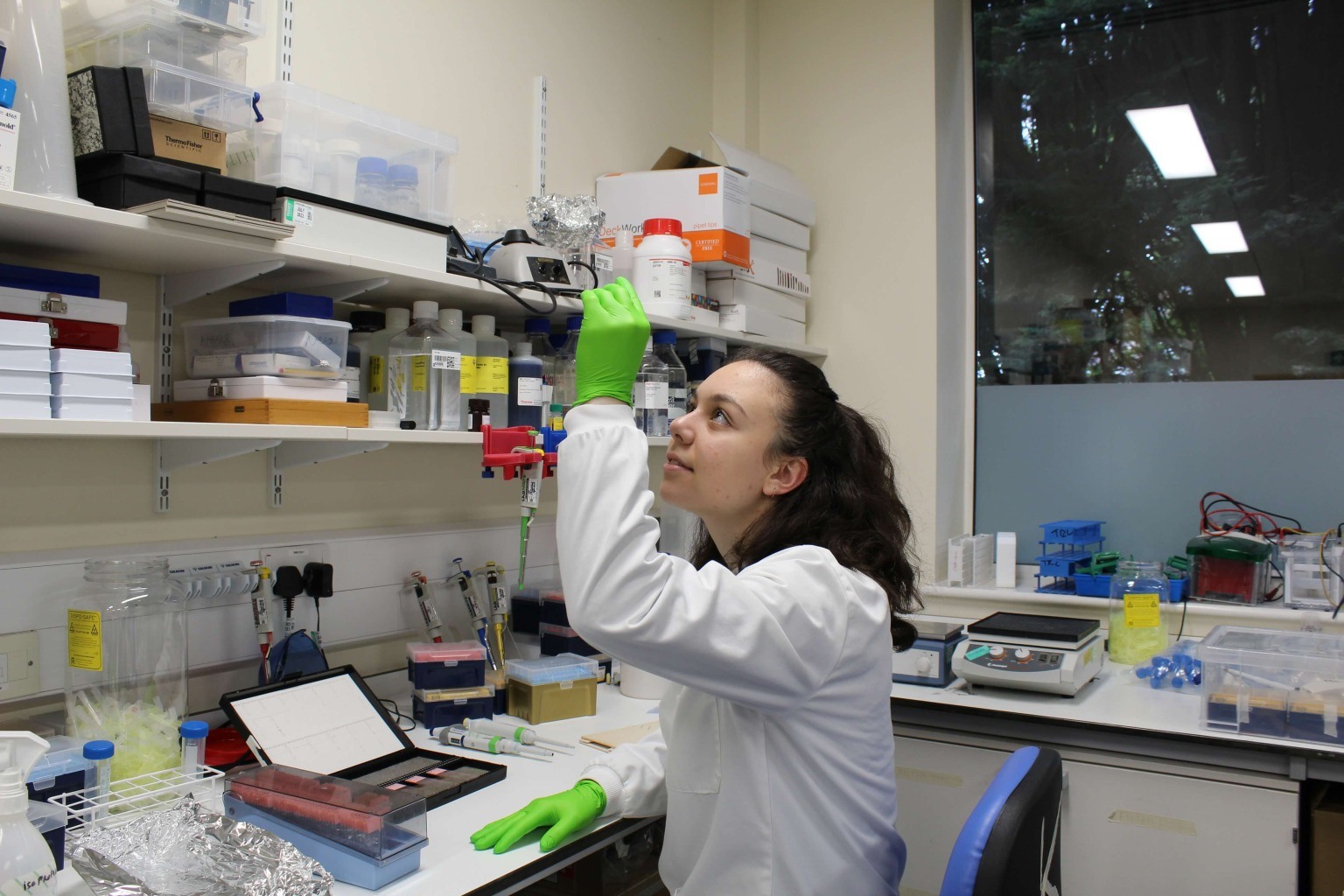
Exploring the invisible: Dr. Ariadni Boziki simulates the molecular world
Chrysovalantou Kalaitzidou

Magazine / Interviews , Science
Dr. Ninou received her Ph.D. from the National and Kapodistrian University of Athens (NKUA) with a thesis titled “The role of lncRNAs in the development of mammalian brain”. Previously, she completed her Master’s in “Molecular Medicine” at the Medical School of NKUA, and her Bachelor’s degree at the Department of Biology of the same university. Additionally, Dr. Ninou loves the theater, whether it is participating in performances, watching, or writing reviews. Lately, she has also developed a new hobby in Space Biology!
Tell us about your research in recent years and what motivates you.
I am a postdoctoral researcher at the Hellenic Pasteur Institute in the Laboratory of Molecular and Cellular Neurobiology. Our research focuses on neurodegenerative diseases, specifically Parkinson’s disease. My project focuses on microglial cells, “the immigrants of the immune system in the central nervous system”, as I like to call them, and their role in Parkinson’s disease onset, progression, and course. Overall, I am very happy and look forward to going to work everyday. When I get ready to leave the house in the mornings, I feel like I’m going to a place where I meet my friends and do what we love! Of course, there are constant disappointments. There are many times when something didn’t go well, when the results of an experiment showed that your hypothesis was wrong. However, the joy and satisfaction you get when something succeeds keep you going. Additionally, your team makes all the difference, there is good communication, mutual support, and a healthy environment.
Do you believe that the research process is genuinely authentic nowadays, or is it so scheduled, “boxed,” and “swamped” in bureaucracy that it ultimately hinders real progress and development?
Research has been following trends and hype for many years, just like everything else around us. However, blindly following trends can lead to something meaningless. We should consider the current trends without being negative about them, because there is often some truth there. When a hype is created, especially in research, it’s likely because there’s a need to answer a question. However, I am concerned that sometimes this is driven by what new, impressive technology we have at our disposal. For example, when the OMICS era of producing large datasets started, researchers focused excessively on these technologies, which often didn’t lead to any conclusions or answers to biological questions. Over time, this situation balanced out. These technologies are now used in everyday life and answer questions. I believe this is the right balance: understanding the needs of the times while always questioning, “What is it that I want to answer?”. Additionally, every country operates differently in terms of bureaucracy. In our country, unfortunately, research staff spends a lot of time dealing with bureaucracy and administrative tasks, which are not of minor importance but take up time that could be dedicated to research. It saddens me that we have to write exhaustive progress reports that no one reads, renew contracts every few months, gather supporting documents, and more. If we improved these aspects as a country, we would do much better because we have excellent research personnel, and I firmly believe in this.
I admire that you are a multifaceted person, as you are involved in various aspects of art. How are science and art combined in your life?
In terms of time and daily life, they are not combined at all. I try to adjust my time appropriately – as much as possible – to keep up. Theater is my great love! For me, it’s something organic, the hack I’ve found to take care of my mental health and maintain balance. I also have many friends from the theater groups I’ve been part of over the years. I love the entire process of finding a play, rehearsing, performing, and the excitement that comes with it. I also watch theater performances and write reviews. It’s the way I’ve found to manage my emotions and perhaps a disguised form of psychotherapy! My involvement in theater has given me skills that have been very useful in research, such as helping me with presentations. Because you expose yourself and it’s somewhat scary, you develop mechanisms to help you deal with stage fright. It has also helped me with team management, understanding what it really means to be a team player, when to make compromises, how to help others or ask for help. Like in theater, we need this team spirit in the lab as well.
Do you have a female scientist who inspires you and serves as a role model?
In recent years, I happen to work in a female-dominated environment, and the Pasteur Institute, in particular, has the highest number of women compared to other institutes, not just at the student or doctoral level but also in senior positions. Our lab has a female supervisor, Era Taoufik, who supports many of your organization’s actions. Additionally, we are fortunate to work with Rebecca Matsa, an iconic figure in the field of neuroscience, and all the other PIs in the department are women. We are a fantastic team, and we support and understand each other deeply, which is a great blessing that I am currently enjoying! In the new generation of neuroscientists, I have been following closely Rosa Chiara Paolicelli who works on microglia and I never miss her talks as I love the way she presents her work. Another scientist who influenced me a lot is my first supervisor Marga Orejas. I met her when I did my diploma thesis – in 2011 – in Valencia in a lab working on fungi and fungal enzymes. She taught me how to organize my time, how to read papers, how to set up experiments and present them, basic concepts of research integrity, and she did it in a Socratic method; never didactic. She is a person of dialogue and discussion. I love her, we still keep in touch, and I am truly grateful to her!
Especially at the beginning of one’s career, I firmly believe that the most important thing is the people you will collaborate with, the team. When students are looking for their thesis or PhD and are anxious about the topic, I believe that the best approach is to choose the supervisor and the team first, and then the project.
What are your future plans and aspirations in the field of science?
This is an extremely difficult question that I might have to answer at some point as I grow older. I know for sure that I love the academic environment. I have friends who have left academia and are now in industry; they are very satisfied, and things are certainly better, at least financially. It’s challenging to become a PI – especially in Greece. It requires other skills, such as management abilities to lead a team and staff, not just being a good researcher. Personally, I plan the next week or maybe the next month – that’s it. For example, my plans now are to progress with the project we have started and see some results and that is a satisfying goal for me. My recent guilty pleasure is what is called Space Biology. It excites me a lot, and I recently took a NASA course on it. Always through the lens of neurobiology and particularly neurodegeneration. Space science has existed and flourished for many years, but in the last 5-10 years, NASA and ESA have had intense research activity in biology and medicine, as it has become commercially available. At the moment, I treat it as a beloved hobby, and we’ll see where it takes me.
Given your experience in teaching students and your joy in communicating with young people pursuing their dreams in the STEM fields, what advice would you give them?
I enjoy communicating science with undergraduate students and recent graduates. A friend of mine has a motto that I have adopted, which says: “Do the things you love with the people you love.” Especially at the beginning of one’s career, I firmly believe that the most important thing is the people you will collaborate with, the team. When students are looking for their thesis or PhD and are anxious about the topic, I believe that the best approach is to choose the supervisor and the team first, and then the project. The project, we often know that it may change along the way. However, you will have to work with the same person for a few months or even years, and you need to collaborate well and productively. Especially in the beginning, when we are more inexperienced and haven’t yet found our footing, this relationship can range from traumatic to wonderful. As much as possible, choose the people. Also, I would advise students not to be afraid to apply for anything! The mindset of “there’s no way they’ll choose me” or that something is meant for superheroes, needs to be discarded. Apply! It is a process through which you learn, especially if there’s an interview or you need to write a motivation letter —these are all useful experiences.
Out of everything you have achieved and experienced, what are you most proud of and fulfilled by?
In my professional life, my work has given me many wonderful moments of joy. For example, successfully completing an experiment that I had been trying for a long time, getting a paper published, earning my PhD, or seeing a student who was completely inexperienced becoming able to set up experiments and formulate scientific hypotheses after only a year. Of course, there is almost always this sense of dissatisfaction, which I consider positive as it prevents you from becoming complacent and pushes you to go further. However, I have felt real pride and fulfilment in my personal life, my everyday life with my partner and our friends. I am extremely proud of my friends! I consider them to be amazing. This cliché, which holds a lot of truth, is that these small everyday moments ultimately shape our entire life. I truly believe that the most important thing is to have succeeded somehow in your personal life, to be on good terms with yourself and your loved ones!
Find Dr Ninou on LinkedIn


Chrysovalantou Kalaitzidou

Thaleia-Dimitra Doudali

Danai Korre
